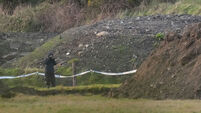Gardaí buying body cameras

However, they could be breaking the law, under the Surveillance Act of 2009, if they don’t warn people that they are being filmed.
Garda Representative Association president, Dermot O’Brien, said he was aware that some gardaí had purchased the recorders online.













